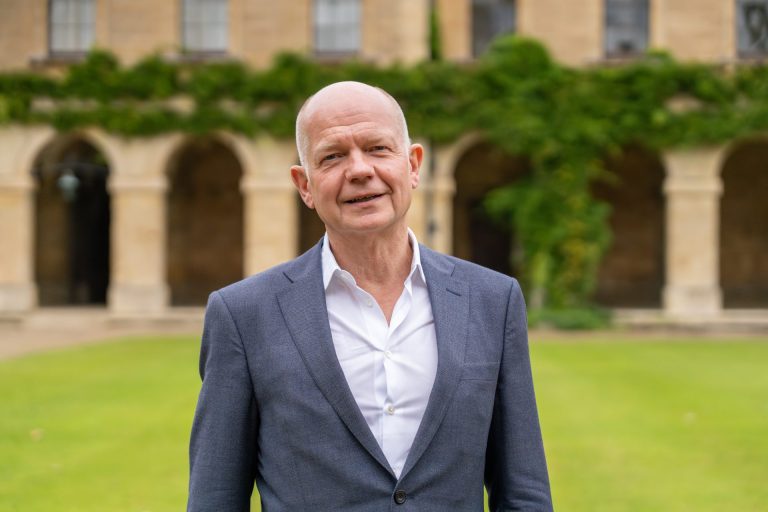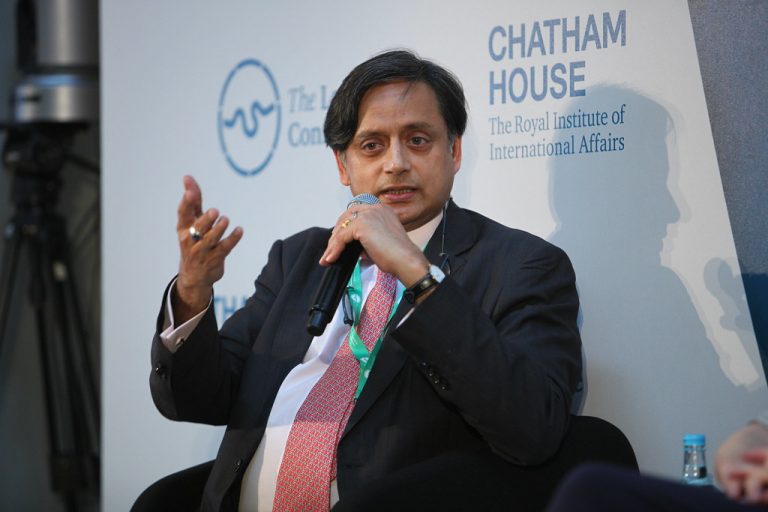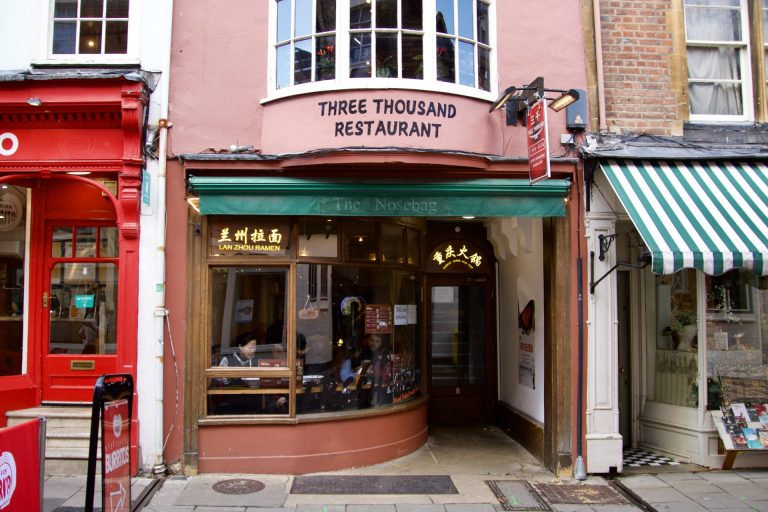Dr Shashi Tharoor is an Indian politician, writer, and former diplomat. He has written twenty-six books spanning history, politics, biography, religion, literary criticism, fiction, and more. He was a UN diplomat for twenty-nine years from 1978 and ran as Secretary-General in 2006. As a Congress Party MP in India since 2009, he has been very critical of the exclusionary-populist BJP regime. In 2015 he made a viral speech at the Oxford Union, arguing that Britain owed reparations to former colonies. His subsequent book, Inglorious Empire: What the British Did to India, earned widespread praise and became a Sunday Times Top 10 bestseller.
Cherwell: You were born in London in 1956, and do you think there’s anything in your early life which foreshadowed your later career.
Tharoor: The globalism I suppose goes back to the fact that at a very young age I had to travel from the UK to India on a ship with my parents, and relocate into a different environment to what I’d known the first two years of my life. That would be the thing that set the tone for my future life of frequent travel, jetting around the world, working for the United Nations and subsequently in public life. Over a hundred flights a year is the state of my life these days. That’s one thing from my infancy that foreshadowed what I’ve been living with since.
Cherwell: You were a diplomat at the UN between 1978 and 2007. What are your proudest moments from your diplomatic career?
Tharoor: I was privileged to have some extremely exciting things to do during my career. The first stint was eleven years with the UN High Commissioner for Refugees, during which I ran the programme for Vietnamese boat people rescued at sea and brought into the port at Singapore. While that was successful, I also found myself dealing with thorny and unexpected refugee problems in Singapore, which I was not there to resolve but which I had to by virtue of my mandate as the UN’s representative there. The first Polish refugees, after the crackdown on Solidarity in 1981, were seamen who jumped ship in Singapore and came to me, and the first Achinese refugees to make it into Singapore. I’m proud to have resolved both of those, as well as one particular crisis when a Polish seaman swam to a US destroyer and the Singaporean government was desperate that I solve the problem without any publicity. Forty years later I probably can talk about it publicly, but I was able to solve all of it with no diplomatic mess, public scandal, or media exposure. It was an educating and maturing experience.
Then I worked at UN peacekeeping at the end of the Cold War, when I joined the department of five civilian professionals and four military people, which then grew to a department of eight hundred. I left seven years later and was present at the creation of this huge UN peacekeeping enterprise. I was the one person both handling peacekeeping – I was in charge of the operations in the former Yugoslavia – and interpreting it for the world, speaking at Sandhurst, the Royal College of Defence Studies, the American Naval College, and writing for academic publications on peacekeeping when there was no peace to keep. That kept me in the frontlines of the UN’s work at headquarters and went to the making of my career as a prominent UN official.
Another highlight was working in Kofi Annan’s office. He was an outstanding secretary-general, one of the greatest, and being by his side as one of his right fingers – I won’t say right hand because there were so many of us – I managed to learn a lot, help him a lot, and help run his office at a very challenging and inspiring time. Finally, I headed my own department, dealt with various management challenges, and ran to succeed him, but lost a fairly tight race to Ban Ki-moon.
I look back without the slightest regret to a very memorable time in the UN, never a dull moment.
Cherwell: After the UN, you entered the Indian Parliament in 2009. What are your proudest achievements as an MP?
Tharoor: My fundamental successes have been to do with development initiatives in my constituency, Thiruvananthapuram. That’s ultimately what an MP is elected to do. My frustrations have been with having been relegated to Opposition for the last ten years, with a government not entirely appreciative of the role of an Opposition in a democracy, which hasn’t recognised the useful contributions we can make.
Cherwell: You’ve been critical of the populist BJP regime in India, especially in your book The Paradoxical Prime Minister. Could you outline your main criticisms of it?
Tharoor: The government’s problem is its fundamental bigotry, which vitiates many of the good things it does in advancing technology and infrastructure in India and so on, all of which I’m prepared to acknowledge, as well as acknowledging the energy the prime minister has put into his personal diplomacy around the world, to uphold India and Indian foreign policy. What I truly deplore is that it’s accompanied by the pettiest and basest kinds of Islamophobia and minority-bashing, which has done a great deal of damage to social harmony in a gloriously pluralist land. It’s unworthy of any government that seeks to represent the vast, diverse democracy that India is.
Cherwell: Do you foresee an end to the BJP hegemony?
Tharoor: Well, we thought we were coming close in this year’s election. We didn’t quite make it. We’ll have to wait for the next opportunity five years down the road. That’s five more years of this kind of divisive politics which I am here to resist on behalf of the Opposition.
Cherwell: On your literary career, what’s your favourite of the many books you’ve written, and why?
Tharoor: First of all, you can’t ask an author that, because it’s like asking a parent to name a favourite child. You put everything of yourself into the book you’re writing when you’re writing it. Like with a child, you can’t go on saying, “I wish he had a bigger nose” or “I wish he had different colour eyes”, and you can’t do that with a book either. It was true to what you felt at the time you wrote it. I stand by all of my books. There’s none I’m really embarrassed I wrote, they all reflected what I thought, felt, and cared about at the time I wrote them.
Cherwell: Your first work of fiction was The Great Indian Novel in 1989. What drove you to write that one, and how do you situate yourself in the tradition of postcolonial literature?
Tharoor: Amusingly enough, I had reviewed Salman Rushdie’s Midnight’s Children in 1981 and called it “the Great Indian Novel”, and that title inspired me when I was writing my own. I was reading a very lively translation – or, as a translator would call it, transcreation –of the Mahabharata, the ancient Indian epic, by Professor P. Lal, and I was struck by the immediacy of the stories and the universality of the concerns. Here we have an epic that was told throughout India for 800 years, roughly 400BC to 400AD, and became so much the repository of all the wisdom of the times that it was even referred to as the Great Indian Library. And then I wondered, Why did we stop retelling it?
So, the conceit that occurred to me was, What if we retold it in the twentieth century? The great events of the twentieth century were very clearly the freedom struggle against the British and the early years of independence, so that would be the obvious theme for the tale-tellers of that time. From there I got the idea of replacing the fabled narrator of the epic with a cantankerous old politician in his anecdotage, recounting the story of the independence movement in which he was both a participant and an observer.
I tried to transmute the epic as well as the great events of the freedom struggle into one seamless story, to cast the light of an ancient legend on the contemporary legends of the twentieth century, and at the same time the light of a modern sensibility on an ancient legend that most Indians are very familiar with. I thought the best way to do that was in the satirical vein, not least because there had been no tradition of modern satirical writing in India in English, and I thought about initiating one.
I was very proud of the book. Somewhat to my surprise, it was hailed by critics as the first Indian postmodern novel. At that time I didn’t even know what postmodernism was! It also won the Commonwealth Writers’ Prize for the Asian region and had its heyday. But it’s even more gratifying when today, thirty-five years later, I have young people who weren’t even born when the book came out, coming up to me clutching copies for my signature. That’s been my vindication of why it was worthwhile to write.
Cherwell: Which author has been your biggest literary influence? PG Wodehouse?
Tharoor: I love Wodehouse to read for pleasure – I’ve read every word he ever wrote, and I’ve written a couple of essays about him and his work – but whether he’s been an influence, beyond a very limited extent, it’s difficult to say. In my collection The Five Dollar Smile there’s a story I wrote deliberately in the style of Wodehouse, but set in Calcutta instead of in London. I suppose in The Great Indian Novel there is one scene vaguely echoing the kind of humour that Wodehouse would have enjoyed, but it’s a little more ribald than anything he wrote. But otherwise, I couldn’t call him an influence, because I’ve done only four works of fiction and the remaining twenty-two books in my oeuvre are non-fiction.
Many of the writers who gave me the greatest pleasure gave me pleasure precisely because I could never imagine myself writing anything similar. My wife and I discovered Gabriel García Márquez and just loved his writing, the translations were extremely readable, and we’d read everything he’d written before he then won the Nobel Prize.
My writing is nothing like any of those. I’d like to think my writing is distinctively me. But whether it is or isn’t, reading gives you a sense of what is good writing, and of the various possibilities of good writing. It is not necessarily for you to imitate in a directly instructional way.
Cherwell: Your most famous book is Inglorious Empire: What the British Did to India, which was a result of your Oxford Union speech. In the decade since you spoke, the debate about Britain’s colonial past has intensified. On the one hand there has been more honest and multicultural history, and surveys increasingly find that pride in imperial history is declining. On the other hand, there is a fierce backlash from the Right, with Conservative MP Robert Jenrick saying last month, for instance, that former colonies “owe us a debt of gratitude.” What do you make of this intensifying debate in Britain?
Tharoor: I am gratified that I seem to have opened a door. When the book came out there really was nothing on that side of the ledger in contemporary publishing. There’d been several books arguing the case for the British Empire, by Lawrence James, Niall Ferguson, Andrew Roberts, and others. When mine came out against the Empire it was taken with a sharp intake of breath and some, I hope, shock of recognition, but there was also an awful amount of very welcome writing about it. For example, Lord Ridley devoted his entire column in The Times to the book, and said that he was amazed that Indians were even willing to speak to the English after what had happened. I met him later and expressed my surprise that a Tory peer, that too one of Norman descent, would actually say that. He replied: “I’m a true Conservative and I believe that we should have traded with you, not conquered you,” which in a sense is an appropriate traditional Conservative response.
But having said all that, the truth is that I was unprepared for the flood of material and books that came out about this whole business about colonialism. Some backlash is inevitable. I gather there is a project in Oxford, headed by a theologian called Biggar, trying to make the moral case for colonialism, which to my mind is impossible to make. But more power to him, let him have a try. At least people are now acknowledging that there is a great deal to reckon with. My book acknowledges that many good things may have happened but they happened in the service of a fundamentally immoral and iniquitous system, the colonial system.











